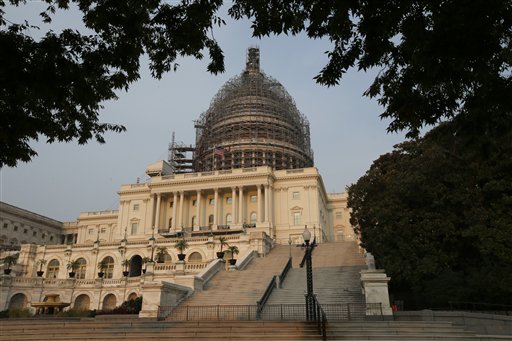-
Tips for becoming a good boxer - November 6, 2020
-
7 expert tips for making your hens night a memorable one - November 6, 2020
-
5 reasons to host your Christmas party on a cruise boat - November 6, 2020
-
What to do when you’re charged with a crime - November 6, 2020
-
Should you get one or multiple dogs? Here’s all you need to know - November 3, 2020
-
A Guide: How to Build Your Very Own Magic Mirror - February 14, 2019
-
Our Top Inspirational Baseball Stars - November 24, 2018
-
Five Tech Tools That Will Help You Turn Your Blog into a Business - November 24, 2018
-
How to Indulge on Vacation without Expanding Your Waist - November 9, 2018
-
5 Strategies for Businesses to Appeal to Today’s Increasingly Mobile-Crazed Customers - November 9, 2018
US House Vote On Two-Year Budget Deal Expected Wednesday
John Boehner is trying to push through a budget deal that would resolve controversial problems that lie in wait for his succesor as speaker of the House, who is expected to be Paul Ryan.
Advertisement
On Tuesday the White House issued an endorsement of the U.S. budget deal agreement, announcing that it met President Obama’s key tests by providing considerable relief from damaging spending cuts and by doing it equally between the defense and nondefense sides. “I mean I don’t think there’s anything you can do at this point”.
If an agreement is reached, the spending caps for domestic discretionary spending for defense and non-defense programs would be raised during the two-year period, said the Republican and Democratic aides who spoke on condition of anonymity.
An administration official said that the deal, which would potentially end the threat of another shutdown, is a “compromise” that proves bipartisan cooperation is possible.
Congressional GOP leaders are fighting to round up support for a far-reaching, two-year budget deal in the face of vicious opposition on the right.
Another fast-approaching deadline is this Friday, when Boehner resigns, having been forced out by hardline conservatives angry over his willingness to negotiate with Democrats. The deal that could be voted on by the House as early as today would provide a respite from manufactured crises and short-term patches that satisfy no one.
“Unlike in previous budget agreements, this was a process that the president and the White House was heavily engaged in”. If you go back two years ago, we had the Ryan-Murray budget agreement, which, frankly, if you look at this, isn’t a whole lot different from what he and Sen.
“This agreement will protect our economy and reduces the deficit”, Boehner said in a statement.
Later, Boehner of Ohio said he agreed.
The deal also would prevent a spike in Medicare Part B insurance premiums for doctor visits and lab tests.
The legislation would suspend the current $18.1 trillion debt limit through March 2017.
The deal sets a two-year budget plan that would raise the strict government-wide spending limits – $520 billion for defense programs, $493 billion for non-defense – put in place by the 2011 “sequester”.
Boehner said it did not bother him that his final piece of major legislation would depend on a majority of Democrats. The pending deal fits both criteria. For example, part of the strategy to raise money under the deal is selling off 58 million barrels of oil from the Strategic Petroleum Reserve between 2018 and 2025.
WASHINGTON (AP) – No government shutdown.
Advertisement
Democrats, meanwhile, were unified, saying they would accept an increase in defense spending only if it was matched dollar for dollar with domestic spending. It will be up to the House and Senate Appropriations committees to produce a detailed omnibus spending bill by the December. 11 deadline.





























